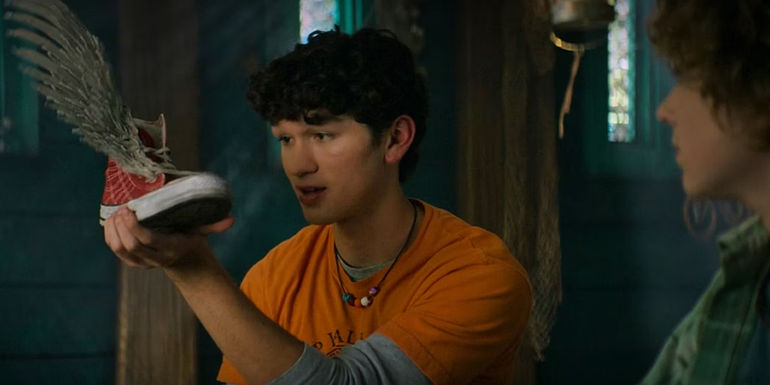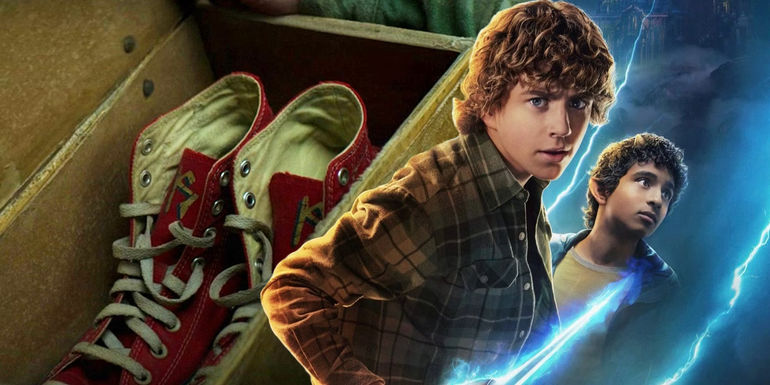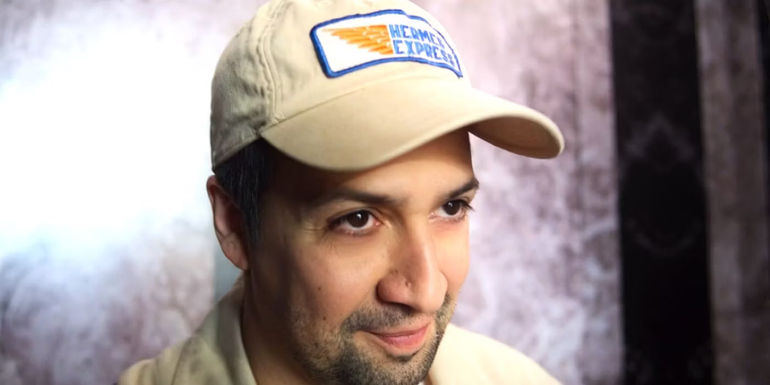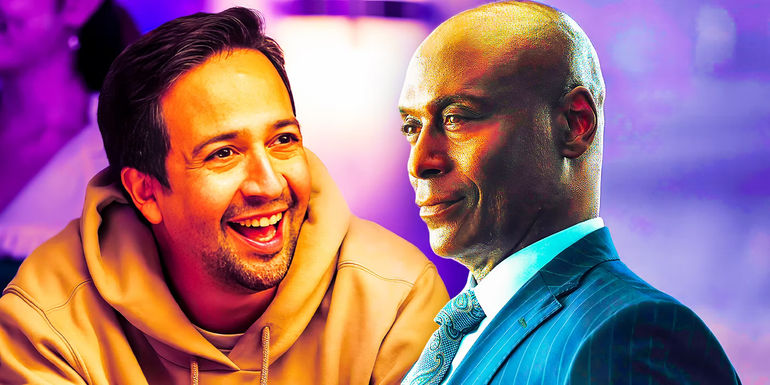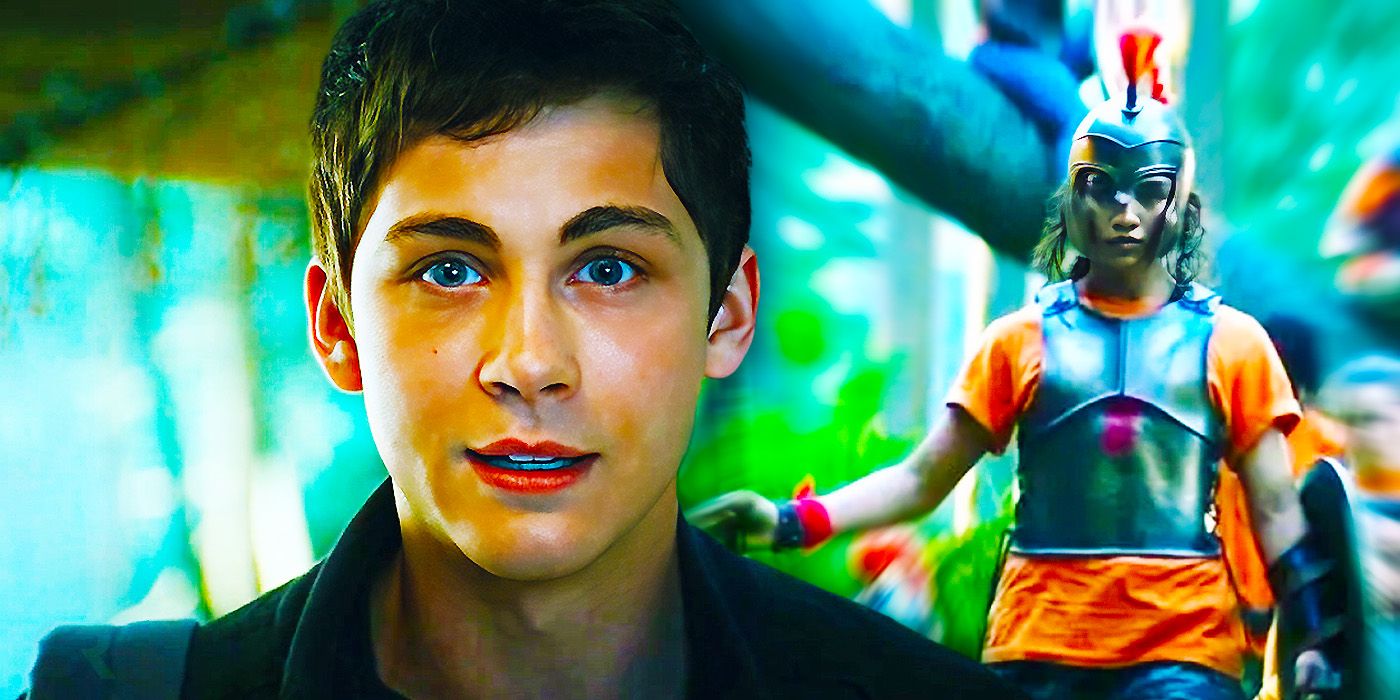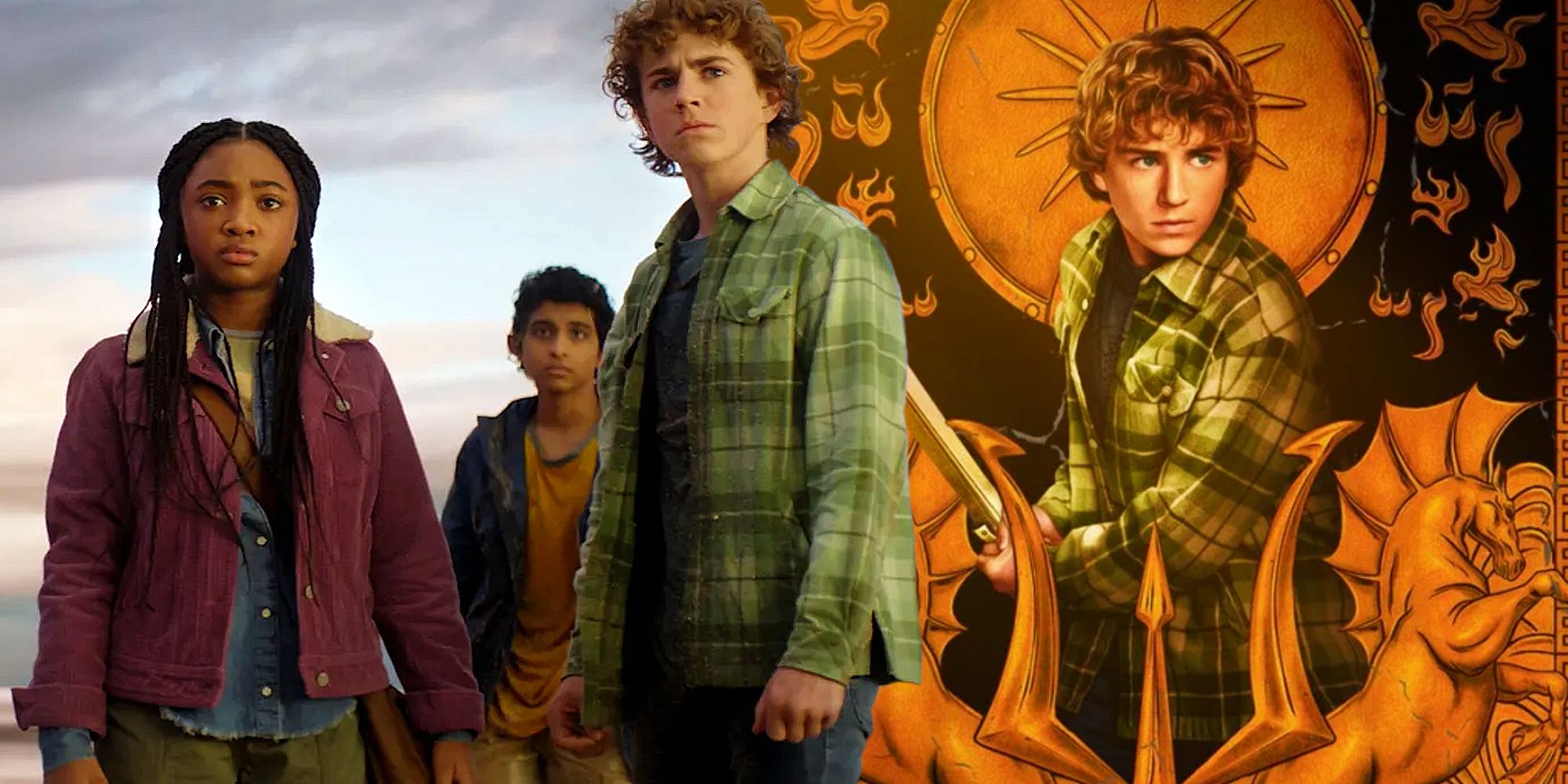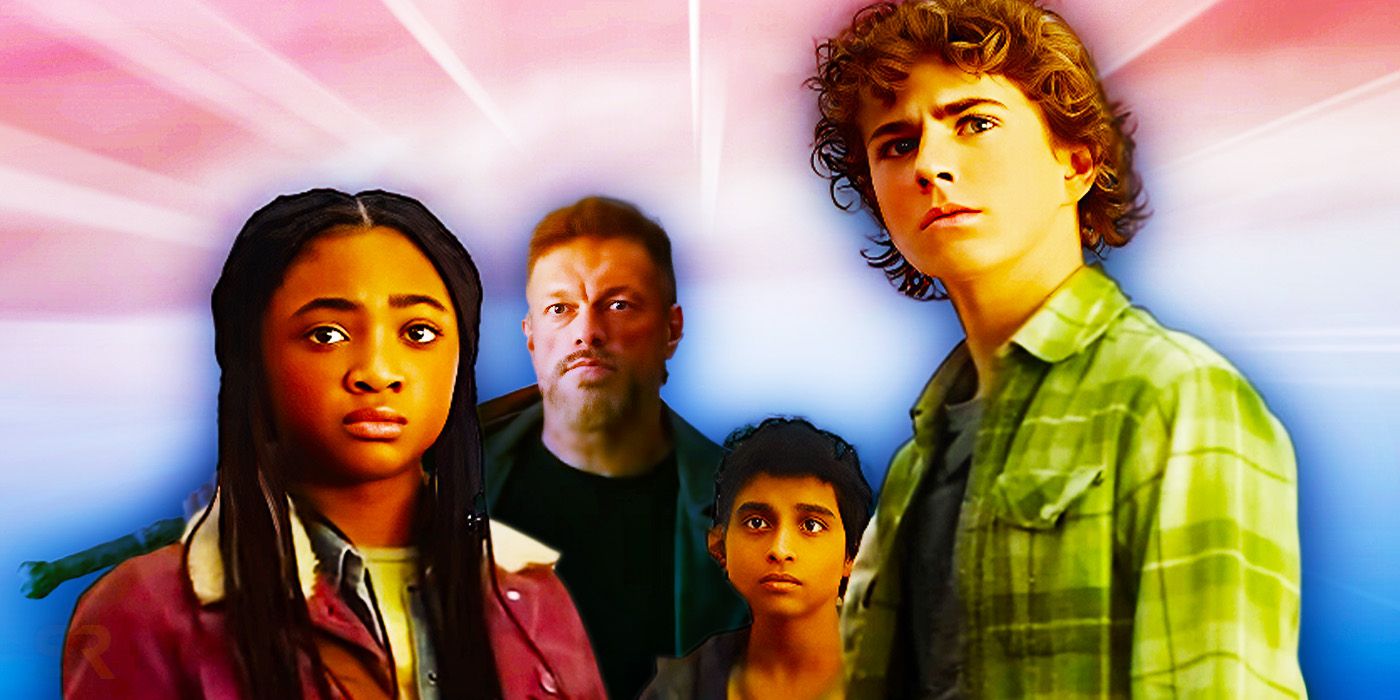
The Hidden Meaning of "Maia" in Percy Jackson and the Olympians

Exploring the deeper significance of the command "Maia" and its connection to Hermes and his children in Percy Jackson and the Olympians.
The Winged Shoes of Maia
In Percy Jackson and the Olympians season 1, episode 3, Luke Castellan gifts Percy a pair of magical shoes disguised as a pair of red Converse hi-tops, which can make the wearer fly. These shoes, which grow wings when Percy says "Maia," have a deeper Hermes-related meaning in the series. The flying shoes come in handy for Percy, Annabeth, and Grover as they face off against Medusa, the gorgon. When Medusa hunts them down in the cave full of statues, Grover dons Luke's shoes and uses the command "Maia" to launch into the air and distract the gorgon.
Walker Scobell and Charlie Bushnell as Percy Jackson and Luke looking at the winged shoes of Hermes in Percy Jackson and the Olympians episode 3
These winged shoes are just one of many magical items encountered in Percy Jackson's TV show. Other items include Annabeth's hat, gifted from her mother, Athena, and Percy's pen-disguised sword. The significance of Luke's winged shoes and the command "Maia" holds a key connection to the show's upcoming twists and themes.
Percy Jackson and the Olympians' poster next to Hermes' flying shoes in their box
Maia: Hermes' Mother and Symbolism
The meaning behind the command to make the shoes fly is that Maia is the name of Hermes' mother in Greek mythology. Hermes often gifts winged shoes to his claimed children, and he chose "Maia" as the command in order to pay homage to his mother, and thus his children's grandmother. Fittingly for her relationship with Hermes, Maia is also a Greek mother-related word used to honor older women. By making the shoes fly at the word "Maia," Hermes' magic appears to be a symbolic way of having his mother help his children traverse the sky, as Maia was a Pleiades notably associated with the night sky.
Hermes smiling in a Hermes Express cap in Percy Jackson and the Olympians episode 3
Hermes' homage to his mother through the winged shoes highlights the hypocrisy of the Greek gods, particularly in their treatment of their children. The depiction of Percy Jackson season 1's Greek gods emphasizes their disregard for their children and the negative impact this has on the young demigods, who revere their parents yet receive little to no contact or support from them throughout their upbringing.
Lin-Manuel Miranda as Hermes and Lance Reddick as Zeus in Percy Jackson and the Olympians
The Hypocrisy of the Greek Gods
Hermes giving all his children winged shoes that pay homage to his mother and the love he bears for her thus highlights the hypocrisy of the Greek gods. The command "Maia" indicates that Hermes values his family and his mother for raising him, yet Luke's role in Percy Jackson and the Olympians counters this notion through Hermes' absence as a father.
The Lightning Thief book cover with Percy and Hermes in Disney's Percy Jackson show
The symbolism behind the command "Maia" and the significance of Hermes' homage to his mother shed light on the deeper themes and criticism of the Greek gods in Percy Jackson and the Olympians. These themes serve to enrich the narrative and provide a thought-provoking exploration of the complex relationships between the gods and their children.
Luke and Percy Jackson in episode 2
